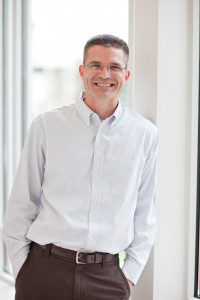Jonathan Leeman of 9Marks just wrote a humdinger of a blog about what he sees as a lack of shepherding among seminary professors. Leeman suggests in his post that many contemporary theologians conceive of their task in a kind of free enterprise way, rendering them relatively unaccountable and thereby potentially dangerous to the church.
On the contrary, the church elder, in Leeman’s view, is bound to guard the saints and defend them from error. Here’s a synopsis of this point from Leeman:
Numerous matters like these, all heaped together, reminded me what a different thing the academic enterprise is from the eldering enterprise. One is about intellectual stimulation between supposedly good, rational people; the other is about spiritual warfare between desperate, clinging-to-grace people. It’s as if you enter the Christian academic realm and all the rules for pastoral care and wisdom suddenly change—in fact, it’s as if all the rules suddenly go out the window. “We’re all equals here. We’re all discerning and wise and godly. Take no heed!”
I praise God for the faithful academics who trained me in seminary. Yet the best ones were good because they were churchmen first and academics second. Any academic who takes offence at my remarks, I dare say, just might take offense because he or she finds more identity in being an academic than in being a churchman.
Leeman goes on to offer the following word of advice to Christian academics:
If you are an academic, may I propose, do not conceive of your students, colleagues, journal editors, and publishers any differently than you conceive of the members of your church. All of them are sheep who are threatened with temptation and deception on a minute-by-minute basis. Remember that you, too, are a sheep, and that you need the accountability and restraints of your church and its elders in your academic work, even if you are smarter than all of them.
There is a great deal here to think about and chew on. Let me just note that I would agree with Leeman’s broad point. Christian educators are responsible to God. They are driven by the teaching of the Bible, and as Christians, they are not fundamentally called to innovate as a duty, but to pass on the faith. This involves creative and fresh thinking as it naturally arises, yes, but fundamentally Christian academics are called with all leaders of the church to be faithful to Scripture and its teaching.
On a practical level, I would suggest that it is essential that academics be accountable to a university or seminary statement of faith, to a broader denominational statement of faith or confession (if their institution is part of a bigger movement), and to their local church. Currently, in some settings, none of these guidelines are followed. Teachers say what they like and we all hope for the best.
It is optimal to have local church elders aware of what teachers stand for in the classroom. They need not and should not critique every sentence, every word of instruction, but they should be aware, I think, of what academics are standing for in their teaching and writing and they should hold them to the church’s confession of faith. In addition, the school itself should have a confession that guides and bounds the teaching of professors. Beyond this, denominational officials should possess awareness of what instructors are saying and should also hold professors accountable.
This kind of threefold accountability, practiced with care, would greatly help our present situation. From my limited vantage point, many contexts today offer precious little accountability for Christian teachers.
Finally, I might say that in my opinion, many of us evangelicals place far too much emphasis on creativity, flexibility, and charity. We need to incorporate these things in our scholarship as the Bible allows, but we need to remember that the Bible is given for things like “correcting” and “rebuking,” according to 2 Timothy 3:16. Professors are not necessarily pastors, but they are in a Christian context leaders, and thus they are responsible to help the church fulfill its broader mission in whatever role they play.
The New Testament has a very strong emphasis on correcting which, to be frank, is not in vogue in modern thought. But this is an essential work of Christian leaders, be they pastors, professors, or organizational heads: “guarding the deposit” (1 Timothy 6:20). We can be fresh thinkers, yes, but we fundamentally need to guard the people of God from error, which the Bible presents as everywhere in this fallen world. We need not be fearful, but we must be careful.
This is a much bigger conversation, and I love the academy and its ability to stimulate fresh thought and insight, but I do think that the pendulum has swung too far, and we need a greater emphasis in our day on accountability, for one, and on the essential tasks of staying faithful to the teaching of God’s holy Word.











